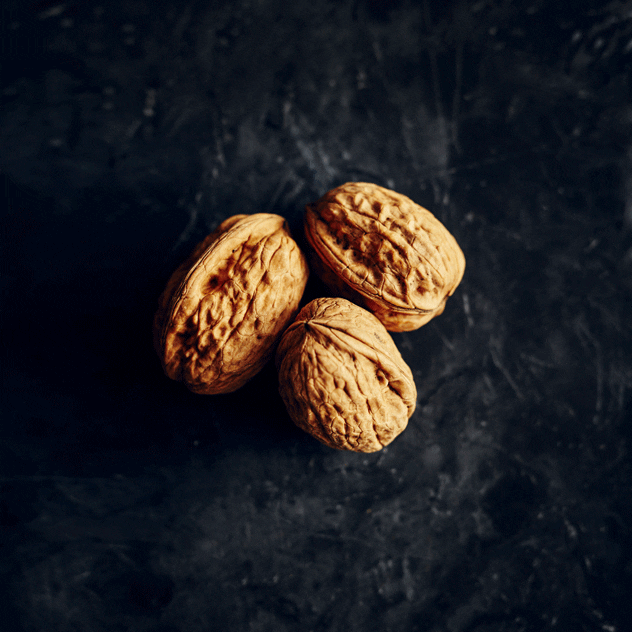Walnuts. This globe like nut can help to lower blood pressure and improve heart health. It also acts as a dose of fibre, healthy fats, minerals & vitamins.
Walnuts
ORIGINS
Wild walnuts are one of the oldest gathered foods in the world, and have been collected as a food source since prehistoric times. The variety of the nut we most commonly see today started in Persia. The earliest cultivation is thought to have begun with the Ancient Greeks, then the Romans spread the trees across Europe and parts of North Africa. The trees are now found in the most temperate areas around the globe. The Persian nut has been grown in China since around 400AD, and walnut oil has even been found preserved
in the remains at the Pompeii excavations.
HOW TO STORE
Once the fruit of the Juglans tree drops, the outer green case needs to open and peel away. Inside is the hard seed – which is left to dry before being cracked open to reveal the inner sweet kernel. Once removed from the shell, walnuts should be kept in cool, air-resistant conditions. They will otherwise deteriorate quickly due to their high unsaturated fat content. The kernels can be stored in an air-tight container in the fridge for 3-6 months.
HOW TO COOK
Walnuts are best toasted, to bring out the natural sweetness and earthiness of the oils. The nuts can also be pickled in a brine, sugar syrup or liqueur to preserve them longer. To toast walnuts, spread them thinly over a baking tray and toast for no longer than 8 minutes in a hot oven. From there they can be used in both sweet and savoury dishes. Walnut oil is also prized in French cooking for flavouring vinaigrettes, game dishes and sweetened cakes.




